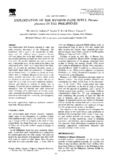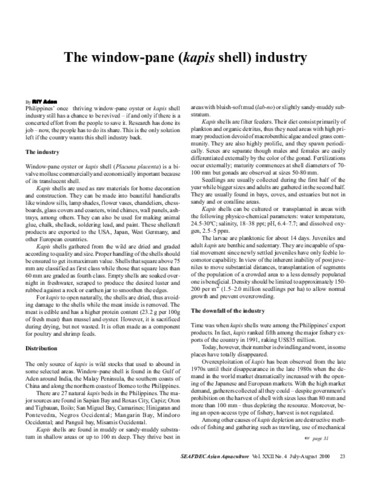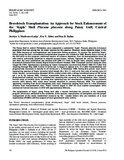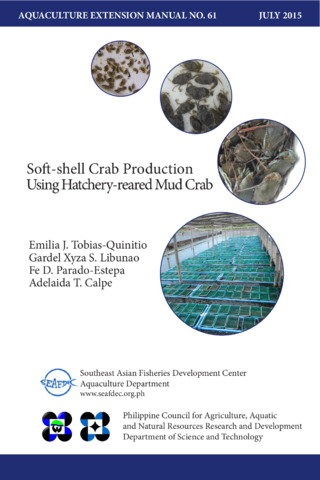Exploitation of the window-pane shell Placuna placenta in the Philippines
Share
Abstract
The window-pane shell Placuna placenta or 'kapis' has great economic importance in the Philippines. The translucent shell is used in the manufacture of lampshades and other shellcraft items exported to Europe, USA and Japan. Due to its high demand, excessive and uncontrolled gathering of kapis has been noted over the past years. Its possible depletion has been a concern; thus, a nationwide survey on the status of the fishery was conducted in 1993. There are 27 kapis beds in the Philippines, six of which are considered the major sources of kapis shells. Kapis shells are gathered by (1) handpicking (in shallow areas); (2) compressor diving (in deeper areas); and (3) dredging. Because of open access to the fishery, anybody can exploit the resource. Kapis stocks are declining in most beds, while in others they are already low as a result of excessive gathering, pollution, siltation, and destructive methods of fishing such as trawling. To prevent further depletion, establishment of sanctuaries, bans on trawling and other destructive means of fishing, strict enforcement of existing regulations, community-based fishery management, and further research on seed production, restocking, and transplantation are recommended.
Suggested Citation
Gallardo, W. G., Siar, S. V., & Encena II, V. (1995). Exploitation of the window-pane shell Placuna placenta in the Philippines. Biological Conservation , 73(1), 33-38. https://doi.org/10.1016/0006-3207(95)90057-8
Subject
Collections
- AQD Journal Articles [1249]
Related items
Showing items related by title, author, creator and subject.
-
The window-pane (kapis shell) industry
Adan, R. I. Y. (Aquaculture Department, Southeast Asian Fisheries Development Center, 2000) -
Broodstock transplantation: An approach for stock enhancement of the 'kapis' shell Placuna placenta along Panay Gulf, central Philippines
Madrones-Ladja, Jocelyn A.; Aldon, Eva T.; Baliao, Dan D. (College of Agriculture, University of the Philippines Los Baños, 2012)The Panay Gulf in central Philippines once supported a substantial ‘kapis’ Placuna placenta (Linnaeus) population that was among the six major sources for this species. However, stock depletion began in the late 1980s ... -
Soft-shell crab production using hatchery-reared mud crab
Tobias-Quinitio, Emilia J.; Libunao, Gardel Xyza S.; Parado-Estepa, Fe D.; Calpe, Adelaida T. (Aquaculture Department, Southeast Asian Fisheries Development Center; Philippine Council for Agriculture, Aquatic and Natural Resources Research and Development (PCAARRD), 2015)"The production of soft-shell crabs is well established in other Asian countries but its sustainability is already being threatened due to the decreasing mud crab population in the wild where the seedstocks are sourced. ...




